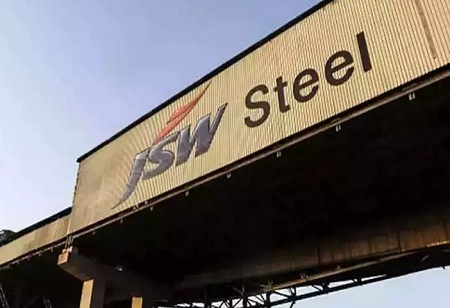As the Indian steelmaker searches for fuel for its blast furnaces, JSW Group has entered the competition to buy two coking coal mines from Australia's BHP Group in a potential $1.5-2 billion deal. BHP is selling the 20 MTPA Daunia and Faunus mines in Queensland after experiencing a 32% decline in half-year earnings, displeasure with the state's increased coal royalty, and ESG (environmental, social, and governance) worries. Out of the 20 MTPA, 15–16 MTPA are coking coal used to make steel, while the remaining 10 MTPA are thermal coal.
The lone Indian participant in the competition is JSW, which will face off against international steel trading and mining giants like Nippon Steel, Posco, and Glencore as well as domestic mining businesses Yancoal and New Hope Corp. and many private equity firms. In the upcoming weeks, non-binding indicative bids are due. Some of the analysts closely following the situation suggested that JSW would be receptive to joining up with a PE group as part of a consortium. The Blackwater mines from the BHP Mitsubishi Alliance joint venture in Queensland will also be sold by BHP and its Japanese trade partner, Mitsubishi.
The anticipated disposal comes after BHP sold its 80% ownership in the joint venture between BHP and Mitsui Coal (BMC) for coking and thermal coal to the Australian company Stanmore in May 2022. Despite having a 55 MTPA capacity, the joint venture's Hay Point port facility near Mackay only shipped 46.3 MTPA in 2022. Following the release of its quarterly results in February, BHP stated, "We are seeking to divest these assets to an
operator who is more likely to prioritise the necessary investments for continued successful operation." "We will seek to maximise these assets' value through trade sale." By employing hydrogen or natural gas as alternative fuels for their blast furnaces, steel industries throughout the world are attempting to reduce their carbon footprint. However, coking coal won't entirely be replaced by such initiatives. "Emissions and energy intensity are directly impacted by the quality of the coking coal. Therefore, the usefulness of the Australian coking coal will be crucial, according to a knowledgeable official who spoke on the record. "Blast furnace operations will be carried out more effectively using high-grade coals to lower carbon intensity. This will therefore be a crucial factor for players like JSW, who must also take Australian freight costs into account.
Despite the global economic downturn, Australia's coking coal prices have been steadily rising, especially since China withdrew its tacit embargo on imports from Australia in 2020. In January, China resumed purchasing coking coal from Australia, sending 14 ships carrying 1.4 million tonnes of coal.
The senior leadership of JSW Steel has developed plans to spend Rs 2,000 crore to establish a brand-new coking coal mine in Jharkhand. It is awaiting a formal announcement from the government after being named the highest bidder for the coking coal mine that was recently put up for auction. By FY26, the new mine, which contains reserves of almost a billion tonnes, is anticipated to be operational by the firm. Similar to its Moitra coking coal mine, which is also located in Jharkhand, the operations will be on a smaller scale.
JSW requires 18 mt of coking coal annually to operate at full capacity. The company needs roughly 4.5 mt of captive coking coal to reach 25% integration, but India does not have that level of supply. So, there is a search for worldwide assets. To reduce costs overall, it is intended to combine 20–30% domestic coal with high-quality coal.
The cost of long-term sustainable coking coal is between $150 and $170 per tonne. However, the post-Ukraine volatility in commodity prices has resulted in $34 billion in net profit for trading or upstream miners like Glencore. The sale of coal accounted for more than half of the unexpected profits. Users like JSW were impacted by the increase in coking coal prices to $670 per tonne FOB Australia in March 2022, up 75% from the previous year. JSW has developed its mining expertise over the years and now runs four mines in Odisha, nine in Karnataka, a lignite mine in Rajasthan, as well as one mine in the US and one in Dubai.
